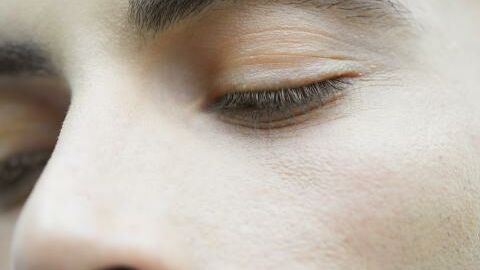Since the beginning of 2020, many countries in Europe have been in a completely unexpected health crisis as a result of the coronavirus pandemic. But after a long quarantine, some countries are now taking the first steps towards easing the lockdown and as part of this, governments are advising people to wear face masks when they are in public spaces. Although this is quite common for people from Asian countries, having to wear face masks in public is a first for people in the UK.
Discover our latest podcast
Although wearing a face mask is vital for protecting yourself as well as others around you, it has been proven to cause problems for your skin.
Could wearing a face mask cause spots?
We talked to Jade Frucot, a biotechnology engineer specialising in cutaneous tissue metabolism and the head of the R&D department at Evoleum, a skincare product manufacturer.
Blemishes caused by an excess of sebum
When we wear face masks, the constant friction causes more pressure to build up on top of the nose and cheeks, the chin and behind the ears. To defend itself against this friction, our skin consequently produces collagen to resist this pressure (which can be a good thing) but it also produces sebum to prevent the skin from drying out as a result. This excess sebum is what can cause blackheads and acne.
Blemishes caused by perspiration
Face masks are designed to be airtight since they filter the air. By doing this, they retain the moisture and droplets released when we breathe which helps to prevent the spread of COVID-19. It's worth knowing that the air we exhale contains 10 times more water than the air we breathe in.
Therefore, this humidity is retained when we wear masks, causing our skin to become macerated. Due to the fact our skin can no longer breathe as easily and becomes suffocated, our pores become blocked, which is what causes spots to appear or cause existing spots to become aggravated and worse.
So how can you prevent them?
Your choice of mask
The mask you choose is very important. The material, as well as the manufacturer, can have an impact on your skin and some masks even have visible staples that encourage chafing and irritation. The choice of fabric is also important because quite often, dyed synthetic materials can cause itching and further irritation.
Therefore, it is necessary to go for breathable materials such as cotton or organic and ethically responsible materials and avoid synthetic materials such as polyester. Choose products that have been made in the UK. Not only are they are better for your skin, but they are also better for our country and the environment!
Impeccable hygiene
Making sure your skin is clean is also essential. For example, avoid wearing foundation when you wear your mask so as to prevent your skin becoming too dry and suffocated. Using skin cleansing products on an evening before bed is also a really good idea, whether you’re wearing a mask or not.
Using oil-based products such as thick, nourishing creams or products that contain vegetable oils and butters is a good way to limit friction and reduce irritation and rashes.
You should consider lotions that have been enriched with antioxidants which will strengthen your skin without making it even greasier.
For those who are more prone to irritation, rashes and itching, it is important to use oils, vitamins and minerals and active ingredients that help keep your skin hydrated. Getting these helpful nutrients through your food and drink can also improve your skin.
For people with oily skin who are more likely to aggravate their acne or suffer from more blackheads by wearing face masks, it is important to take antioxidants orally in order to boost your skin’s defences and reduce redness.
Adapt your routine
As soon as possible, take your mask off, taking care not to touch your face. This helps limit problems associated with skin maceration. Remember to wash your hands thoroughly before using your mask or have a second mask to switch between should you need to. Furthermore, following a healthy lifestyle with regular physical activity can help cleanse your skin from the inside out.















